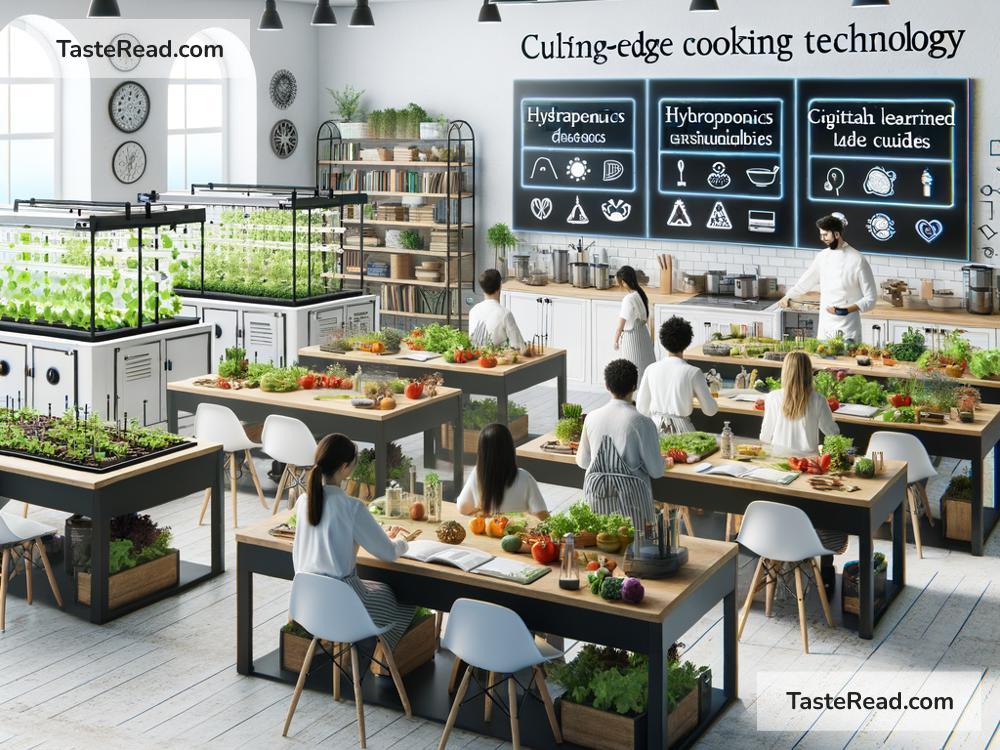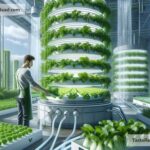The Future of Food-Based Education: Learning Through What We Eat
Food is more than just fuel for our bodies. It’s a way to bring people together, a window into culture, and a tool for teaching important life lessons. Over the years, educators and communities have begun to realize how powerful food-based education can be. Teaching through food has the potential to help people understand science, math, health, history, and sustainability in fun and creative ways. But as we look ahead, what does the future of food-based education really hold? In this blog, we’ll explore how this approach to learning is evolving and what it could mean for students and society as a whole.
Food as a Tool for Learning
Food-based education focuses on using food and cooking as a way to teach. For example, a teacher can use a recipe to explain math concepts like fractions and measurements. Cooking is also a great way to learn science—students can study chemical reactions, like what happens when you bake bread, or the role of microorganisms in fermentation. Beyond these subjects, food connects us to history and geography. Exploring dishes from different countries helps students understand cultures and traditions from around the world.
But food-based education is not just about academics. It also teaches life skills. In today’s fast-paced world, many young people lack basic cooking knowledge. When schools integrate food education into their curriculum, they help students become more independent and capable of making healthier choices.
Technology Meets Food Education
One trend shaping the future of food-based education is technology. Advances in digital tools are already starting to change how we teach through food. For example, students can use virtual reality (VR) to tour farms and learn how food is grown. Apps and online platforms can teach cooking techniques step-by-step, allowing kids and adults to practice skills at their own pace. AI-powered meal planners can help students understand how to balance diets or calculate nutritional values.
Moreover, interactive games and simulations are making food education more engaging. Imagine a classroom where students use a game to design a sustainable food system or virtually run a restaurant. These tools combine fun with learning and make complex topics, like food waste or global hunger, easier to grasp.
A Focus on Sustainability
The future of food-based education will likely involve a strong focus on sustainability. Climate change has made people more aware of how their food choices affect the environment. Schools are increasingly teaching students about topics like reducing food waste, eating locally, and growing their own produce. Many schools are also starting gardens where students can plant fruits and vegetables, learn about ecosystems, and understand the importance of agriculture.
By including lessons on sustainability, food-based education prepares students to make environmentally responsible decisions. For example, kids who learn about sustainable farming will grow up to be more mindful of food production and consumption. They may choose careers that focus on creating healthier food systems or simply adopt habits that promote sustainability, like composting or reducing packaging waste.
Food and Mental Health
Another exciting direction for food-based education is its focus on mental health. Scientists are discovering more about the connection between what we eat and how we feel. Schools are beginning to use food education to teach students about these connections. For example, classes might highlight how fruits, vegetables, and whole grains can improve mood and concentration, while sugary snacks can lead to energy crashes.
Mindful cooking and eating practices are also becoming part of the classroom experience. When students learn to pay attention to the tastes, smells, and textures of their food, they often feel calmer and more present. These habits can help them deal with stress and build lifelong emotional resilience.
Food Education in Every Classroom
Traditionally, food-based education was limited to home economics or health classes, but this is starting to change. In the future, all subjects—math, science, history, art, and even literature—could be taught with food. For example, students learning geometry could cut different shapes using cookie cutters, while art classes could involve creating edible designs. Literature classes could study novels that explore food symbolism or cultural traditions involving meals.
Food education doesn’t even need to stay inside the classroom. Field trips to farms, grocery stores, and restaurants can bring lessons to life. Community events like cooking competitions or food festivals can bring students, families, and neighbors together to learn and celebrate.
Making Food Education Accessible
Finally, the future of food-based education must be inclusive. Not every student has access to fresh ingredients or cooking facilities. Schools and educators are working to close this gap by partnering with local farms, food banks, and community organizations. Mobile kitchens and pop-up workshops can provide hands-on food education for students who wouldn’t otherwise have access.
With technology and partnerships, food-based education can reach more people than ever before. Imagine free online classes where students from around the world can learn how to cook traditional dishes from each other’s cultures. These programs wouldn’t just teach students how to cook—they’d also help build understanding and empathy between different communities.
Final Thoughts
As we move into the future, food-based education has the potential to reshape how we learn. By combining cooking and eating experiences with technology, sustainability, mental health, and inclusivity, schools can provide lessons that stick with students for life. More importantly, food-based education reminds us that learning should be hands-on, creative, and connected to the real world. Whether it’s planting a garden, baking bread, or exploring the science behind flavors, the future of education might just begin in the kitchen.


